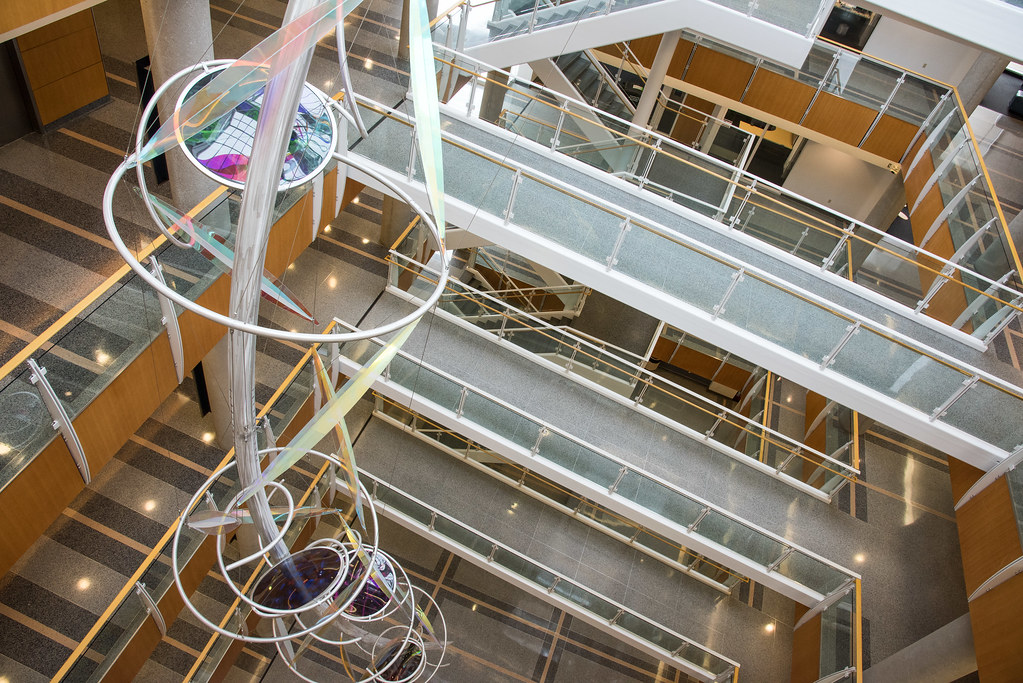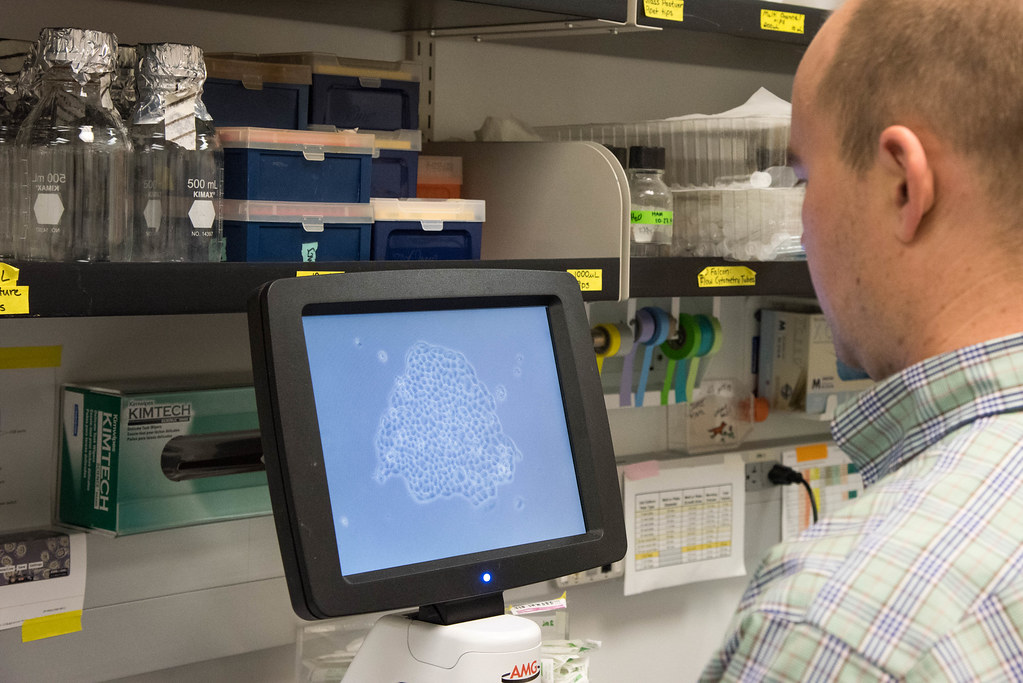
By Lauren Hines | Bond LSC
On an average day, you can find post doctorate Norman Best surrounded by corn in the greenhouse or at his bench in the McSteen lab doing molecular work. However, since Columbia and state leaders issued a stay-at-home order on March 25 to prevent the spread of COVID-19, this means Bond LSC is mostly empty and researchers like Best are at home writing.
“It’s definitely made me appreciate what I had before,” Best said.
Coronaviruses are a family of viruses that can cause respiratory illness in humans. They’re found circulating among animals, and then passed to humans. While the world has seen dangerous coronavirus outbreaks including severe acute respiratory syndrome (SARS) in 2003 and Middle East respiratory syndrome coronavirus (MERS) in 2012, the 2019 emergence of COVID-19 has spread much more quickly.
According to the Centers for Disease Control and Prevention, COVID-19 is spread through respiratory droplets produced when an infected person coughs, sneezes or talks. Staying at home and avoiding contact with others will help prevent the spread.
Most researchers are working from a distance, like Best who is writing a paper on how the plant hormones auxin and brassinosteroid affect lateral meristem growth. However, some are deemed essential whether it’s to water plants, finish crucial experiments or study COVID-19 itself.
Marc Johnson, professor of molecular microbiology and immunology, is currently studying glycoproteins which are proteins on the surface of viruses that dictate what cell they’re going to infect. Even though Johnson usually works on HIV, he’s shifting his focus to COVID-19 and its glycoproteins called, spike.
Johnson is taking other viruses and replacing their glycoproteins with COVID-19 spike proteins to basically create a safe version of our current coronavirus. This will allow him to do multiple tests to try to inhibit viral entry.
In addition, these experiments can also test the effectiveness of antibodies. Recovered patients are donating their plasma — blood without red blood cells and just antibodies — to transfer their coronavirus-fighting antibodies to other patients.

“Of course, if you take plasma from a patient, you want to make sure that there are the antibodies you want in there, so that’s where my [experiment] would come into play to check whether there’s a high level of neutralizing antibodies in their serum,” Johnson said. “If there is, then you know it’s good for injecting. It might be helpful for the patient.”
For those who aren’t working on COVID-19, the interruption has some feeling frustrated.
When Best was in the lab, he was doing molecular work on creating a CRISPR construct. CRISPR is a method of editing genes, essentially splicing DNA into a cell. Now, it’s sitting in the freezer half done.
“I’m working on finishing up a few publications that I’ve had data for that I’ve actually
not been able to analyze before,” Best said. “I had not taken the time to analyze as much as I have now because I am sitting all day on the computer…However, there are still a few things left to do in the lab that have been delayed because of quarantining.”
Jean Camden, senior research associate in the Weisman lab, goes into Bond LSC once a week to check on the mouse breeding colony in addition to working from home.
“For us, the timing was good,” Camden said. “We had just finished some large experiments, and we are now writing, all of us. We have plenty of work to do at home.”
For many researchers, as Camden describes, writing papers is one of the last tasks to do.
“Now there’s no excuse,” Camden said. There’s nothing else to do but write.”
However, even the mounds of data researchers have been sitting on will eventually run out.
“If [the end of social distancing] doesn’t happen within the next two or three weeks, then we will be getting behind on getting experiments done,” Camden said.
So far, MU has moved in-person summer classes online, but is hopeful to re-open campus in the fall under a “new normal.”
“[The end of social distancing] should depend on our preparedness and the resources because one of the reasons why I think we shut down is that we weren’t ready to cater for all the people that were going to be sick, and so the best option was to prevent it,” said Kwaku Tawiah, fifth year graduate student who studies Ebola in the Donald Burke lab. “I don’t know when normal life can return as we knew it before.”
Even though there’s a lot of uncertainty of what’s ahead, Bond LSC researchers are learning to adapt and are continuing their research.
“It is very fortunate that I have been able to work at home and keep my job,” Camden said. “A lot of people here in Columbia have been laid off, and I feel bad for the terrible things that have happened. So, I appreciate the position that I’m in.”
At the moment, Best is still sitting at home with his dog analyzing data and writing. He expects his paper on lateral suppressor1 to be published soon among many others in the works.
“I think we’re all ready to get back to normal life,” Camden said.

